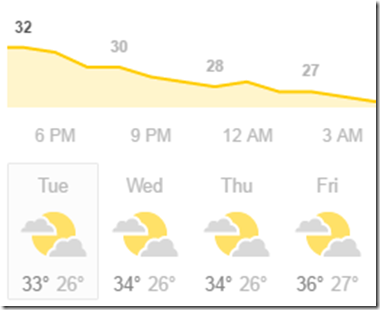A survey by a leading television channel of the state suggests a close finish in the elections due in Kerala, with the opposition Left Democratic Front (LDF) having a slight edge over its rival, the United Democratic Front (UDF). This should not come as a surprise, for the state has been rotating between these two coalitions for almost as long as one can remember. It is as if the electorate is never fully satisfied with their performance after they have been given a chance to govern.
It could also be that it intends to place political parties permanently on probation. There is seldom anything like a “wave” in Kerala. This could be for one of two reasons: That a politically aware populace is not easily swayed by persons, or that interests are deeply entrenched and loyalties fully formed. Malayalis tend not to be heroworshippers. The charisma of E.M.S. Namboodiripad, unlike Jawaharlal Nehru, had derived not from his personality but from his luminous intelligence. The people of the state also very likely have a sense of the constraints faced by its economy and don’t accept great change as a quick possibility. But a churning is perhaps still considered desirable to keep in check the arrogance of politicians, preventing them from assuming that they will always remain in power.
There is, however, some genuine cause for popular dissatisfaction with the UDF currently in power. Despite the unusually mild manner of the chief minister and the efforts he has made to cultivate an image of accessibility to the public — via 24×7 CCTV coverage of his office and adalats held at periodic intervals — two corruption scandals have blighted the image of the UDF. The first is one in which the finance minister was accused of having taken money as quid pro quo for a favourable cabinet decision affecting owners of bars. Though K.M. Mani, the concerned minister, is yet to be indicted, he had to resign, bowing to public pressure. The chief minister is relatively unaffected by the allegations but has shown himself to be unduly sympathetic to Mani’s predicament and unwilling to let him go.
The other scandal has closer links to the chief minister. It has to do with the promoters of a private company dealing 3/29/2016 webcache.googleusercontent.com/search?q=cache%3Aindianexpress.com%2Farticle%2Findia%2Findianewsindia%2Fkeralaassemblyelections201… http://webcache.googleusercontent.com/search?q=cache%3Aindianexpress.com%2Farticle%2Findia%2Findianewsindia%2Fkeralaassemblyelections2016… 2/2 in solar panels advancing its prospects by claiming proximity to the government. Links between the promoters and the chief minister’s office, including an unusually large number of telephone calls from one of them to the chief minister’s official gunman, have been detected. Even though the chief minister has stoutly denied any wrongdoing, the whole affair has left him under a cloud. The two scandals surfacing so close to the elections is likely to have dimmed the chances of the UDF returning to power. In Kerala, there is low tolerance of the misuse of office in the pursuit of personal gain.
However, for the people of Kerala, the relevant question would be whether the present opposition, the LDF, has anything substantially different to offer by way of policies that can improve their lives. As the composition of the leadership of the LDF has not undergone any change in the past decade, there is little for them to hope for in this respect. Not only are the faces that matter the same, the announcement that they are both — V.S. Achuthanandan and Pinarayi Vijayan — to receive tickets means that we have not seen the last of the longstanding rivalry between the two. The public would be naive to overlook the impact of this on governance. But the issue is not so much of dissonance within the LDF but whether it has anything new to bring to the table after its lacklustre performance over 200611. Kerala’s fundamental constraint is that it is an economy dependent on the rest of the world, notably the Gulf region. Not only has the government, therefore, had little control over it for some decades, but this model is also unlikely to be sustained. The Gulf is reeling under the impact of declining oil prices and the construction boom, confined mainly to Dubai, cannot last indefinitely. Unbounded outmigration is not a reasonable prospect. Therefore, if unemployment — estimated to be three times the national average in Kerala — is an issue, the way out would have to be through domestic production. But for domestic production to be feasible, it must be competitive. Three factors determine a region’s competitiveness: The educational profile of its workforce, the industrial climate, and the availability of producer services. Historically, the CPM’s contribution to a negative industrial climate characterised by labour militancy is substantial. Labour militancy may have declined, but its shadow has apparently not paled.
Beyond trade unionism, which has been the opiate of the Left, both fronts share an approach to governance defined by welfarism. Even before establishing health and education on a strong footing, successive governments have championed the proliferation of welfare schemes. This has meant that little is left for investment in infrastructure for production, which only the state, as opposed to the market, can provide. Producer services, ranging from water supply to waste management, set limits to productive activity.
The said survey also indicated that the BJP may open its account with seats in the legislature for the first time. It is difficult to say right now which of the two fronts this will impact. But one thing is certain: Unless the manifestos of the two extant fronts contain something radically new, we are unlikely to see a change in the profile of the state. It will have to continue to live by exporting labour, with the attendant consequence for its autonomy.







